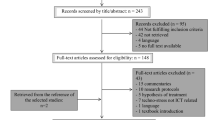Abstract
Psychiatric disturbances often occur in aged patients after surgery, but there is no easy or precise method of predicting their occurrence. We devised an easy mental test, the Yamaguchi University Mental Disorder Scale (YDS), based on the surgical perspective. Using both this new method and the Hasegawa mental disorder scale (HDS), we examined 106 patients who had undergone general anesthesia. HDS only was used in 70 cases, while 36 cases were examined by the newly devised YDS and were then compared with the findings obtained by HDS. On the HDS examination, factors affecting postoperative psychiatric disturbances were, in order of frequency: entering the ICU, amount of bleeding, and duration of surgery. Aged patients who experienced severe surgical stress had a higher risk of developing transient postoperative psychiatric disturbances. On the YDS examination, the relationship between surgical stress and transient postoperative psychiatric disturbances was clearly indicated, as was the case with HDS. Postoperative delirium was seen in a significant proportion of patients with low preoperative scores on YDS (P<0.05), while no significant difference was observed between the mean preoperative scores on HDS and postoperative delirium. In the preoperative evaluation using YDS, postoperative delirium was found to be predictable, and YDS is thus considered to be a more valuable tool in managing aged patients.
Similar content being viewed by others
References
Maeda Y, Hayashi H, Suzuki T (1989) Clinical study of operative mental dysfunction in aged patients (in Japanese). Ronen Syokakibyo (Geriatr Gastroenterol) 2:75–81
Morichika H, Hayashi H, Suzuki T (1990) Post-operative mental dysfunction in aged patients — Studied by the Yamaguchi University scale — (in Japanese). Ronen Syokakibyo (Geriatr Gastroenterol) 3:63–68
Komazawa T (1983) Scaling theory and analysis of data (in Japanese). Asakura Syoten, Tokyo, pp 45–88
Hayashi H, Murakami T, Honma K, Tangoku A, Johno N, Maeda Y, Morichika H, Suzuki T (1989) Results of surgical treatment for esophageal cancer in aged patients (in Japanese). Ronen Syokakibyo (Geriatr Gastroenterol) 2:179–184
Knox SJ (1961) Severe psychiatric disturbances in the post-operative period. J Ment Sci 107:1078–1096
Zaki A (1941) Les psychoses post-operatives. Schweiz Arch Neurol Psychiatr 47:1–25
Morse RM (1971) The anatomy of a delirium. Am J Psychiatry 128:111–115
Yamashiro M (1986) Postoperative mental disorders in aged patients (in Japanese). Ronen Igaku (Geriatr Med) 24:545–553
Shimizu A (1988) Operations and mental activity (in Japanese). Syokaki Geka (Gastroenterol Surg) 11:1993–1999
Kurosawa H, Yoshikawa T (1989) Postoperative mental disorders and their treatment in aged patients (in Japanese). Rinsho Geka (J Clin Surg) 44:191–196
Hasegawa K, Inoue K, Moriya K (1974) An investigation of a dementia rating scale for the elderly (in Japanese). Seishin Igaku (Clin Psychiatry) 16:965–969
Author information
Authors and Affiliations
Rights and permissions
About this article
Cite this article
Hayashi, H., Maeda, Y., Morichika, H. et al. Surgical stress and transient postoperative psychiatric disturbances in aged patients studied using the Yamaguchi University Mental Disorder Scale. Surg Today 26, 413–418 (1996). https://doi.org/10.1007/BF00311928
Received:
Accepted:
Issue Date:
DOI: https://doi.org/10.1007/BF00311928




